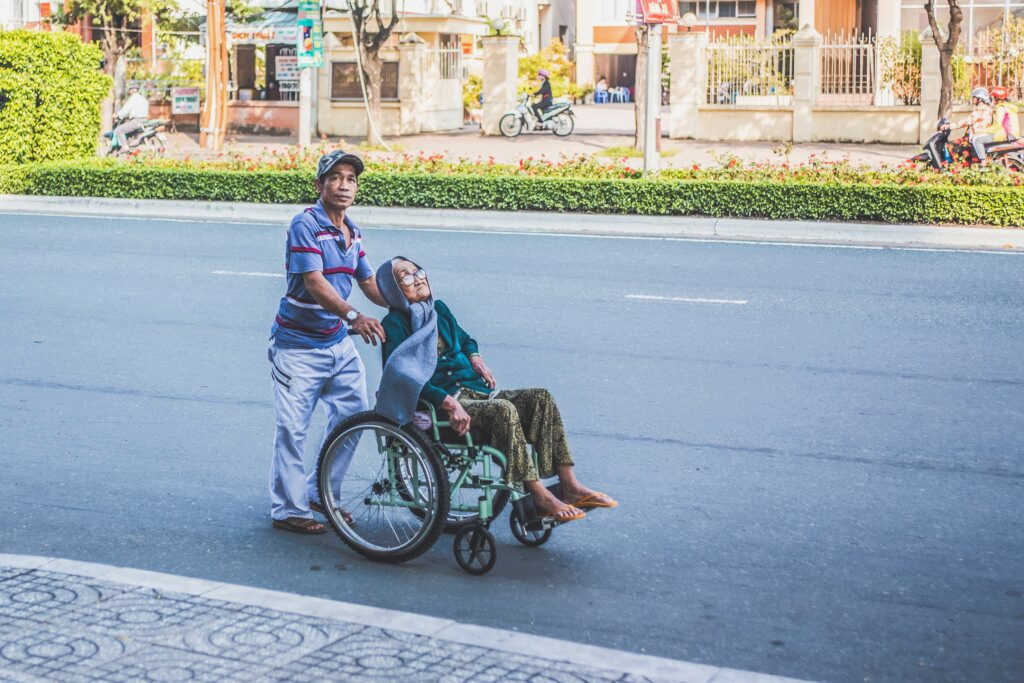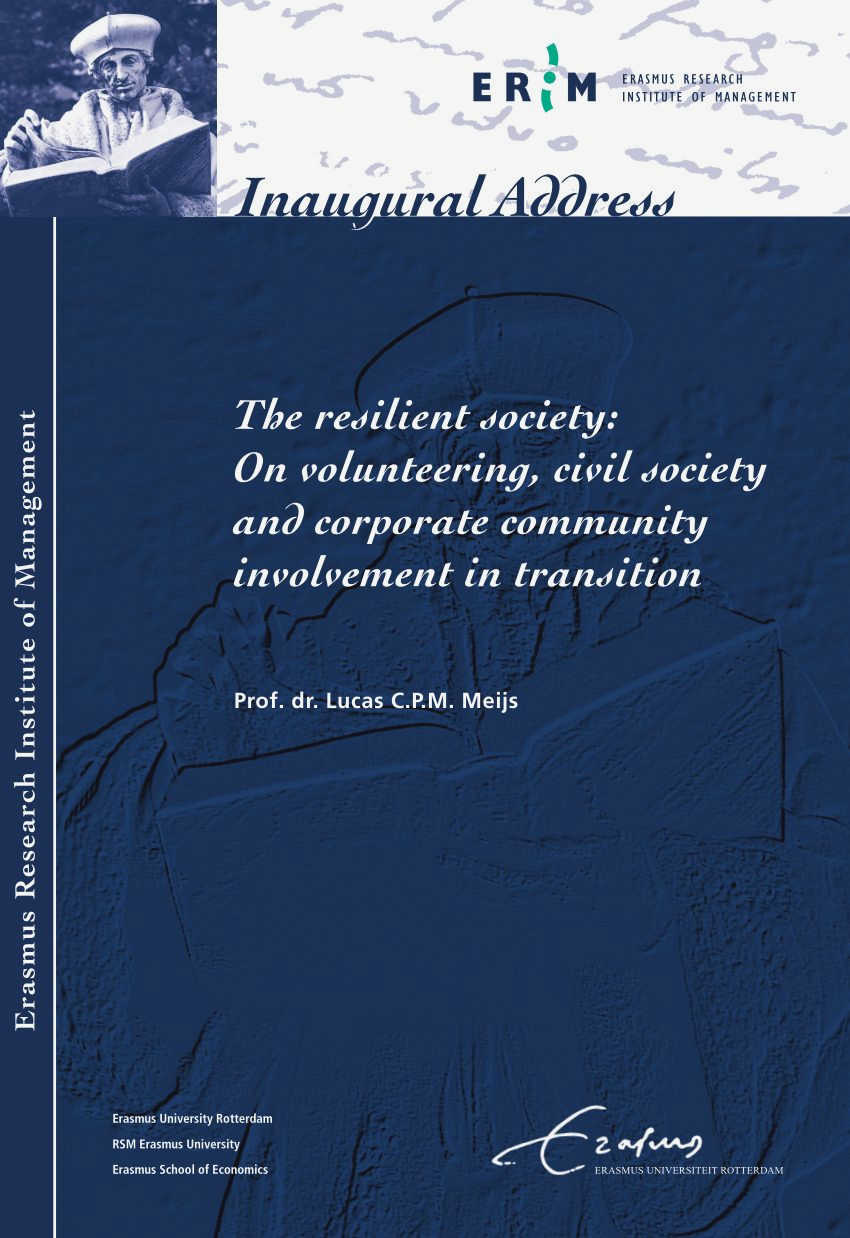Volunteering is a powerful force that drives the development and growth of a resilient civil society. It plays a crucial role in building strong communities, promoting social cohesion, and addressing pressing societal issues. By actively participating in volunteer work, individuals contribute their time, skills, and expertise to make a positive impact on the lives of others.
One of the key reasons why volunteering is essential for building a resilient civil society is its ability to foster a sense of belonging and connectedness among individuals. Through volunteering, people from diverse backgrounds come together, form meaningful connections, and develop a shared understanding of the challenges and opportunities their community faces. This sense of belonging helps to build a strong foundation for a resilient civil society, as individuals work together to address common issues and overcome adversity.
Furthermore, volunteering provides individuals with the opportunity to develop valuable skills and gain practical experience. Whether it is organizing community events, providing assistance to vulnerable populations, or engaging in advocacy work, volunteers acquire a wide range of transferable skills such as leadership, communication, problem-solving, and teamwork. These skills not only enhance individual employability but also contribute to building a skilled and adaptable civil society capable of effectively responding to changing social and economic conditions.
Volunteering also plays a vital role in addressing social inequalities and promoting social justice. It provides a platform for individuals to contribute towards creating a fairer and more inclusive society. By volunteering their time and resources, individuals can support initiatives that aim to uplift marginalized communities, advocate for human rights, and challenge systemic injustices. This active engagement in social change is essential for building a resilient civil society that values equality, diversity, and inclusivity.
In conclusion, volunteering is an essential component for building a resilient civil society. It fosters a sense of belonging, enables the development of valuable skills, and promotes social justice. By actively participating in volunteer work, individuals contribute to the creation of strong communities, social cohesion, and collective action towards addressing pressing societal issues. Therefore, it is important for individuals to get involved in volunteering and play their part in building a resilient future for their communities.
The Importance of Volunteering in Building Strong Communities
Volunteering plays a crucial role in building strong communities by fostering a sense of solidarity and connection among individuals. When people come together to volunteer their time and skills, they contribute to the overall well-being and resilience of their community.
1. Creating a Supportive Network: Volunteering provides an opportunity for individuals to build valuable connections and develop a strong network within their community. By collaborating with like-minded individuals, volunteers can share ideas, resources, and support each other in advancing common goals and addressing community needs.
2. Enhancing Social Cohesion: Volunteering promotes social cohesion by bringing people from diverse backgrounds together and encouraging them to work towards a common purpose. When individuals from different walks of life come together to volunteer, they become more accepting, understanding, and appreciative of each other’s differences, leading to increased social harmony within the community.
3. Empowering Individuals: Through volunteering, individuals can gain a sense of empowerment and become active participants in shaping their community. By contributing their skills and knowledge, volunteers can make a tangible difference and have a positive impact on the lives of others. This empowerment fosters a sense of ownership and responsibility, leading to a stronger and more resilient community.
4. Addressing Community Needs: Volunteers play a crucial role in addressing the various needs of a community. They can help meet the basic needs of vulnerable individuals, such as food, shelter, and healthcare, as well as contribute to long-term development initiatives, such as education, environmental conservation, and infrastructure improvement. By volunteering, individuals can actively contribute to the betterment of their community and help create a more equitable and sustainable society.
5. Inspiring Active Citizenship: Volunteering serves as a powerful tool for inspiring active citizenship and encouraging individuals to be engaged and responsible members of their communities. When people witness the positive impact of volunteering, they are more likely to become advocates for social change and take an active role in civic affairs. This leads to a more engaged and participatory civil society, which is essential for building resilience and addressing complex social challenges.
In conclusion, volunteering plays a vital role in building strong communities by fostering connections, enhancing social cohesion, empowering individuals, addressing community needs, and inspiring active citizenship. By engaging in volunteer activities, individuals can contribute to the overall well-being and resilience of their community, creating a more inclusive, supportive, and vibrant society.
Strengthening Social Connections
Volunteering plays a crucial role in strengthening social connections within a community. When individuals participate in volunteer activities, they have the opportunity to interact with people from diverse backgrounds and cultures. This interaction fosters understanding, empathy, and tolerance, which are essential for building a cohesive and inclusive society.
Volunteering also provides a platform for individuals to form new friendships and forge stronger bonds within their communities. Engaging in shared projects and working towards a common goal helps to create a sense of belonging and camaraderie. It allows people to come together, collaborate, and support one another, ultimately leading to stronger social connections and a more resilient civil society.
Furthermore, volunteering can help to address social isolation and loneliness, which are prevalent issues in many communities. By actively participating in volunteer work, individuals have the opportunity to connect with others and combat feelings of isolation. They can engage in meaningful conversations, share experiences, and establish relationships that contribute to a sense of purpose and belonging.
In addition, volunteering can also contribute to the overall well-being and mental health of individuals. Research has shown that volunteering is associated with lower levels of depression and increased life satisfaction. The sense of fulfillment and purpose that comes with helping others and making a positive impact on society can enhance an individual’s sense of self-worth and happiness.
Promoting Active Citizenship
Active citizenship is a fundamental aspect of building a resilient civil society. It refers to individuals actively participating in their communities, taking responsibility for the well-being of society as a whole. Volunteering plays a key role in promoting active citizenship by providing opportunities for individuals to contribute their time, skills, and resources to meaningful causes.
Volunteering allows individuals to engage with various community organizations, non-profit groups, and social initiatives. By getting involved, volunteers gain a deeper understanding of the challenges faced by their communities and have the opportunity to make a positive impact. This active engagement fosters a sense of belonging and responsibility, leading to a stronger and more cohesive civil society.
Moreover, volunteering helps cultivate important skills for active citizenship. Through their volunteer work, individuals develop leadership, teamwork, and problem-solving abilities. They learn to collaborate with others, navigate complex issues, and find creative solutions to societal challenges. These skills not only benefit the volunteer in their personal and professional lives but also contribute to the overall resilience and effectiveness of civil society.
Volunteering also promotes active citizenship by fostering a sense of empathy and compassion. When individuals volunteer, they often interact with people from different backgrounds, cultures, and perspectives. This exposure encourages understanding and empathy towards others, breaking down barriers and stereotypes. It helps create a more inclusive and tolerant society where individuals actively contribute to the well-being of all members, regardless of their differences.
In summary, promoting active citizenship is essential for building a resilient civil society. Volunteering provides individuals with the opportunity to actively engage in their communities, develop important skills, and cultivate empathy and compassion. By encouraging active citizenship, we can work towards creating a society that is more connected, inclusive, and equipped to face the challenges of the future.
Fostering Empathy and Understanding
Volunteering plays a crucial role in fostering empathy and understanding within a community and beyond. By engaging in volunteer activities, individuals have the opportunity to interact with people from different backgrounds, cultures, and perspectives. This exposure allows them to develop a deeper understanding of the challenges and struggles that others face, leading to increased empathy and compassion.
Through volunteering, one can gain insights into the lives of individuals who may be experiencing hardships or discrimination. This firsthand experience helps break down stereotypes and prejudices, promoting a more inclusive and understanding society. By working side by side with diverse groups of people, volunteers learn to appreciate the unique struggles and triumphs that each person brings to the table.
Furthermore, volunteering often involves working towards a common goal or addressing a shared issue. This collaborative spirit encourages individuals to work together, enforcing the importance of teamwork and cooperation. By volunteering, people learn to value the perspectives and contributions of others, even when they differ from their own. This fosters a sense of unity and encourages the development of a more tolerant and empathetic society.
In addition to fostering empathy, volunteering also provides individuals with the opportunity to gain a deeper understanding of their own privilege and biases. By stepping outside of their comfort zones and engaging with communities and individuals that they may not typically interact with, volunteers become more aware of their own preconceived notions and unconscious biases. This introspection leads to personal growth and a commitment to challenging and combating discrimination and inequality in all its forms.
In conclusion, volunteering plays a critical role in fostering empathy and understanding. By exposing individuals to diverse perspectives and experiences, it encourages the development of compassion and empathy. It also promotes teamwork and unity, while also challenging individuals to confront their own biases and privileges. Through volunteering, we can build a more resilient civil society that is characterized by compassion, understanding, and inclusivity.
Developing Essential Skills
Volunteering provides an excellent opportunity for individuals to develop essential skills that are valuable in both personal and professional life. Through volunteering, individuals can enhance their communication skills by interacting with people from diverse backgrounds and cultures. This can help them become more effective communicators and improve their ability to work collaboratively in a team.
Additionally, volunteering allows individuals to develop leadership skills. When taking on volunteer roles, individuals often find themselves in positions of responsibility, whether it’s leading a team or managing a project. Through these experiences, individuals can learn how to delegate tasks, make decisions, and solve problems, which are vital skills in leadership positions in any field.

Moreover, volunteering offers opportunities for individuals to develop their time management and organizational skills. Many volunteer projects have specific deadlines and require individuals to juggle multiple tasks simultaneously. By participating in these projects, individuals can learn how to prioritize their time effectively, set goals, and manage their workload efficiently.
Furthermore, volunteering provides individuals with the chance to enhance their problem-solving skills. When faced with challenges and obstacles during volunteer work, individuals are encouraged to think critically, come up with innovative solutions, and adapt to changing circumstances. These problem-solving skills can be valuable in various aspects of life, both personal and professional.
In conclusion, volunteering is an essential avenue for individuals to develop a wide range of skills that are beneficial in personal and professional settings. Whether it’s communication, leadership, time management, or problem-solving skills, volunteering offers individuals the opportunity to learn and grow while making a positive impact on society.
Enhancing Personal Growth
Volunteering provides a unique opportunity for personal growth and development. By participating in volunteer activities, individuals can gain valuable skills and experiences that can enhance their personal and professional lives.
One way volunteering can enhance personal growth is by developing new skills. When individuals volunteer, they often take on responsibilities and tasks that they may not have had the opportunity to do in their regular jobs or daily lives. This can include things like leadership roles, organizing events, or working with diverse groups of people. By stepping outside of their comfort zone and taking on new challenges, individuals can develop important skills such as problem-solving, communication, and teamwork.
Additionally, volunteering can also provide individuals with a sense of purpose and fulfillment. When individuals engage in activities that align with their values and passions, it can bring a sense of meaning to their lives. This can improve overall well-being and contribute to a sense of personal satisfaction and fulfillment.
Furthermore, volunteering can also provide individuals with the opportunity to connect with others and expand their social networks. By working alongside other volunteers and engaging with the community, individuals can build new relationships and establish valuable connections. This can lead to a sense of belonging and community, which is essential for personal growth and resilience.
In conclusion, volunteering is not only beneficial for the community but also for personal growth. By participating in volunteer activities, individuals can gain new skills, find fulfillment, and expand their social networks. These experiences can contribute to personal growth and resilience, making volunteering an essential part of building a resilient civil society.
Creating Lasting Impact
Volunteering is not just about making a difference in the present, but also about creating a lasting impact for the future. When individuals come together to volunteer their time, skills, and resources, they contribute to the overall development and well-being of their communities.
One of the ways volunteering creates a lasting impact is through the implementation of sustainable projects. Volunteers often work on initiatives that address community needs in a sustainable manner, such as developing eco-friendly practices, promoting renewable energy, or establishing recycling programs. These projects not only benefit the environment, but also help create a more resilient community that can withstand future challenges.
In addition, volunteering can have a long-term impact on individual volunteers themselves. By actively participating in community service, individuals develop valuable skills, gain new experiences, and broaden their perspectives. These personal and professional growth opportunities can have a lasting effect on volunteers, empowering them to become leaders and change-makers in their communities.
Furthermore, volunteering can inspire and motivate others to get involved and make a difference. When individuals witness the positive outcomes and lasting impact of volunteer-driven projects, they are more likely to be inspired to take action themselves. This creates a ripple effect, where the impact of volunteering extends beyond the immediate beneficiaries and spreads throughout the community.
Overall, creating a lasting impact through volunteering is essential for building a resilient civil society. By addressing community needs, implementing sustainable projects, fostering personal growth, and inspiring others, volunteers play a crucial role in shaping the future of their communities and creating a more resilient society.
Bridging Gaps and Breaking Down Barriers
Volunteering plays a crucial role in bridging the gaps that exist within society and breaking down barriers between different groups of people. When individuals choose to give their time and skills to help others, they contribute to creating a more inclusive and cohesive community.
One of the ways volunteering helps bridge gaps is by providing opportunities for interaction between people from diverse backgrounds. Through volunteering, individuals can meet and work with others who they may not have otherwise come into contact with. This allows for the exchange of ideas, experiences, and perspectives, fostering understanding and empathy.

Volunteering also helps break down barriers by addressing social inequalities and providing support for marginalized groups. Many volunteering initiatives focus on assisting those who are disadvantaged or marginalized due to factors such as poverty, disability, or discrimination. By offering their time and support, volunteers contribute to leveling the playing field and ensuring that everyone has access to the same opportunities and resources.
Moreover, volunteering can break down barriers between different sectors of society. It provides a platform for collaboration between individuals, non-profit organizations, businesses, and government agencies. When these different entities come together to work towards a common goal, they can leverage their respective strengths and resources to achieve more significant and sustainable results.
In summary, volunteering is essential for bridging gaps and breaking down barriers within society. By bringing people from diverse backgrounds together, addressing social inequalities, and fostering collaboration, volunteers contribute to creating a more resilient and inclusive civil society.
Empowering Individuals and Communities
Volunteering plays a vital role in empowering individuals and communities. When individuals choose to volunteer, they are taking an active role in making a positive impact on society. By giving their time and skills, volunteers gain a sense of purpose and fulfillment. They feel empowered knowing that they are making a difference and contributing to the well-being of others.
Volunteering also empowers communities by strengthening social ties and fostering collaboration. When individuals come together to volunteer, they form connections and build relationships with others who share a common goal. This sense of belonging and collective effort creates a strong community bond that can have long-lasting effects. By working together, communities can tackle challenges and overcome obstacles more effectively, creating a resilient civil society.
Furthermore, volunteering provides opportunities for personal growth and skill development. Through volunteering, individuals can acquire new skills and gain valuable experience in areas such as leadership, communication, and problem-solving. These skills not only benefit individuals in their personal and professional lives but also empower them to take on more significant roles within their communities.
By engaging in volunteer work, individuals and communities also have the opportunity to raise awareness about important social issues. Volunteers can advocate for causes they care about, educate others, and work towards creating positive change. Through their actions and dedication, they empower others to join the cause and be part of building a resilient civil society.

In conclusion, volunteering is essential for empowering individuals and communities. It provides a sense of purpose, fosters social connections, and promotes personal and skill development. Moreover, volunteering enables individuals and communities to raise awareness and advocate for important social issues. By getting involved in volunteer work, we can all contribute to the building of a resilient civil society.
Inspiring Others to Take Action
Volunteering is not only about making a difference in the community, but it is also about inspiring others to take action. When people see the impact that a volunteer can have on society, they are motivated to get involved themselves. Through their actions, volunteers serve as role models and showcase the power of individual contributions.
By sharing their personal stories and experiences, volunteers have the ability to ignite a spark in others. Whether it’s through social media, community events, or public speaking engagements, volunteers can inspire others to join them in making a positive change. They can illustrate that anyone, regardless of their age, background, or skills, can make a difference in their community.
Additionally, volunteers can create a ripple effect by spreading awareness about important causes. They can use their platforms to educate others about the issues that their community faces and the steps that can be taken to address them. By raising awareness, volunteers can mobilize a greater number of individuals to support and take action on these issues.
Furthermore, volunteers often form connections with the people they serve, allowing them to share their stories and the challenges they face. These personal connections can be powerful instruments for motivating others to get involved. When people see the direct impact that their actions can have on someone’s life, they are more likely to take action themselves.
In conclusion, volunteering not only allows individuals to contribute to a resilient civil society, but it also inspires others to take action. Volunteers serve as role models, sharing their personal stories and experiences to motivate others to get involved. They also spread awareness about important causes and form connections with those they serve, creating a ripple effect that encourages others to make a positive change. By inspiring others, volunteers play a vital role in building a stronger and more resilient community.
Contributing to a Resilient Civil Society
Volunteering is a crucial way for individuals to contribute to the development and maintenance of a resilient civil society. By engaging in volunteer work, individuals can actively participate in their communities and address important social issues. Whether it’s through providing assistance to disadvantaged groups, advocating for human rights, or promoting environmental sustainability, volunteering allows individuals to make a tangible impact on society.
Volunteering also helps to build a sense of social cohesion and solidarity within a community. By coming together to address common challenges and work towards shared goals, volunteers foster a sense of belonging and collective responsibility. This in turn strengthens the fabric of civil society, making it more resilient and better equipped to handle future crises or challenges.

In addition to the benefits for the community, volunteering also has many personal advantages. It provides individuals with an opportunity to develop new skills and knowledge, enhance their self-confidence and self-esteem, and build a strong network of relationships and contacts. These personal growth opportunities not only benefit the individual volunteers, but also contribute to a more resilient civil society by fostering a pool of skilled and motivated individuals who are ready to address any future challenges.
By volunteering, individuals also have the opportunity to become more informed and engaged citizens. Through their direct involvement in community issues and initiatives, volunteers develop a deep understanding of societal needs and challenges. This knowledge can inspire them to become advocates for positive change, to participate in democratic processes, and to take on leadership roles within their communities. This active citizenship is essential for building a resilient civil society that can effectively address and overcome societal issues.
In conclusion, volunteering plays a crucial role in contributing to a resilient civil society. It allows individuals to actively participate in their communities, build social cohesion, develop personal skills, and become informed and engaged citizens. By volunteering their time and efforts, individuals contribute to the overall strength and resilience of civil society, making it better equipped to face future challenges and create positive change.





